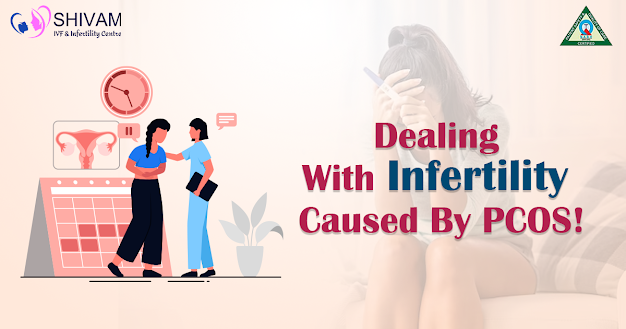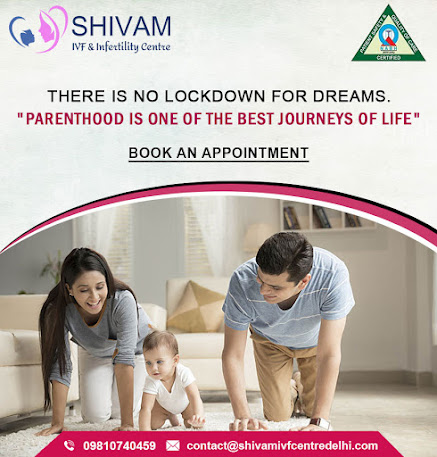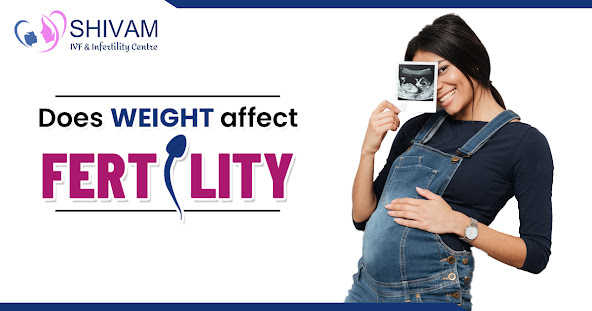Dealing With Infertility Caused By PCOS!
A
common reproductive endocrine disorder called polycystic ovary syndrome (PCOS)
affects 5% of women. When a woman has polycystic ovaries, her ovaries are
enlarged and covered in numerous small cysts, which are actually immature eggs
that have stopped developing. Additionally, these ovaries have a thick stroma
that overproduces androgens. They may also have a changed FSH/LH ratio in the
pituitary that prevents ovulation. Acne and hirsutism are other conditions
brought on by excessive androgens.
What symptoms indicate polycystic
ovaries?
Dr. Bhavana Mittal says “Usually, they will exhibit one or more of the following signs”:
● Periods that are irregular and
infrequent, with either a high or low flow.
● Acne.
● Hirsutism.
● All of these symptoms become worse with
weight gain.
● The FSH to LH ratio can occasionally
change along with an increase in the hormone test AMH.
*Consult IVF Delhi to confirm your symptoms of PCOS.
How likely is it to have PCOS?
An
estimated 8–10% of women of reproductive age are thought to be affected by the
polycystic ovarian syndrome. It occurs frequently.
What is the PCOS infertility rate?
Polycystic ovaries are associated with a very high rate of infertility. These women typically struggle to conceive and typically need treatment to increase their chances of getting pregnant.
Some
polycystic ovary syndrome sufferers ovulate (release a mature egg)
infrequently, while others never do. We must ovulate because sperm must locate
and fertilize an egg that is mature in order to conceive.
What brings on PCOS?
Long-term
anovulation leads to polycystic ovaries. It has a strong hereditary component.
Additionally, the symptoms are made worse by weight gain and insulin
resistance.
Why is PCOS a factor in infertility?
Anovulation
is the cause of infertility in PCOS. Follicular growth and ovulation do not
occur as a result of too much androgen and an altered hormonal environment.
What PCOS treatments are available
to me if I want to become pregnant?
1.
The first and most important step in treating infertility
caused by PCOD is weight loss. Spontaneous ovulation can happen with even a
5-7% weight loss.
2.
Ovulation induction is possible with a number of
medications, including clomiphene citrate, letrozole, and gonadotrophins like
FSH and HMG. Through performing serial follicular monitoring, the dosage should
be adjusted. It also facilitates timed sexual activity.
3.
Adjuvant medications like metformin, my inositol, and
low-dose steroids may also be used when the ovaries do not respond to these
medications.
4.
Surgery: Laparoscopy and ovarian drilling may be options if
the ovaries do not respond to ovulation-inducing medications. This is
especially helpful for people with high LH and lean PCOS.
5.
If they are unable to conceive even after 6 cycles of
ovulation induction and 3–4 cycles of IUI, IVF may need to be taken into
consideration. During IVF,
these women are at a high risk of developing ovarian hyperstimulation syndrome.
Therefore, it is advised to use a GnRH agonist trigger rather than an HCG
trigger. An ideal result is produced by a policy of freezing all embryos and
frozen embryo transfer.
FINAL WORDS!
If
you're having trouble getting pregnant, you might be feeling overwhelmed,
frustrated, or all of the above. Thousands of patients have been walked through
their fertility journeys by our elite team of IVF doctors in Delhi, who have helped them find answers,
make wise decisions, and ultimately start the family they deserve. For you,
we're prepared to do the same. Every step of the way, by your side.




Comments
Post a Comment